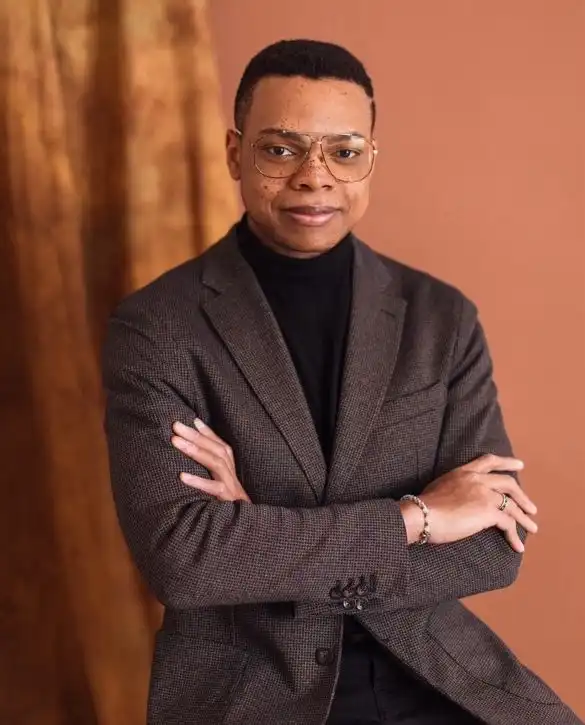Home>Francky, Policy Assistant, EU External Action Service (EEAS), Belgium
04.07.2024
Francky, Policy Assistant, EU External Action Service (EEAS), Belgium
Coming from a Franco-Beninese background, Franck Ayosso has graduated from the Master in Environmental Policy. He currently works at the European External Action Service (EEAS) in Brussels in the Greening sector of Division RM.SCS.6.
What are your main responsibilities?
In my role at the EEAS, I am responsible for the environmental management of 145 EU Delegations worldwide, as well as assisting in the environmental management of our Headquarters. This involves maintaining environmental certifications like BREEAM (Building Research Establishment Environmental Assessment Method) for our main building, for which, with my colleagues in the Greening sector, we have achieved the ‘Excellent’ rating for the main building of the diplomatic service. We are also striving to achieve EMAS (Eco-Management and Audit Scheme) certification for the EEAS Headquarters by mid-2025. Established by the EU in 1993, EMAS is a comprehensive framework designed to improve environmental performance through systematic management practices.
To support this goal, we have established a network of Environmental Correspondents across every Directorate of the EEAS. These correspondents actively participate in workshops to develop and implement various sustainability initiatives. For instance, we are reviewing our mission guidelines to promote the conduct of diplomacy in a more sustainable manner. This includes prioritising trains over planes for specific distances, adjusting rules on classes for distance travelled by planes, and fine-tuning recovery periods to achieve reductions in emissions without compromising the essential nature of diplomatic work.
In terms of EU Delegations, I am responsible for maintaining and improving our environmental management system, which includes tracking key performance indicators (KPIs) for energy, water, and gas consumption, waste management, etc. Recently, I have been working on a new, more comprehensive and adapted environmental management system that will be launched as a pilot project by mid-2025, and gradually expanded to all EU Delegations. This new approach recently received approval from the Steering Committee, a governing body mandated in 2022 by the Secretary General of the EEAS to oversee the implementation of EMAS at Headquarters and an EMS (Environmental Management System) in Delegations. Additionally, I coordinate local efforts, with the help of colleagues from my sector, architects, and the finance sector, to implement concrete sustainability initiatives such as the installation of solar panels, conducting energy audits to reduce operational emissions and reliance on polluting energy sources, and supporting modal shifts.
What is the most fascinating part of your job?
The most captivating aspect of my role is witnessing the tangible impact of our greening initiatives and knowing that my work contributes directly to significant environmental advancements. One of the highlights was my contribution to drafting the Environmental Policy of the EEAS within the framework of EMAS, which was officially signed by the Secretary General in December 2023. This policy underscores our commitment to sustainability and ensures that our environmental goals are embedded in the institution's core strategies.
The EEAS has made substantial progress in several key areas. For instance, we have increased the energy efficiency of our buildings through initiatives such as the installation of photovoltaic panels, better waste and water management, and other Buildings Management Systems, which help reduce our environmental footprint and enhance energy independence. Additionally, I have the opportunity to hold meetings with Delegations from different parts of the world. These interactions allow me to understand their local realities and work with them on specific strategies to achieve emissions reductions and move towards sustainability in their operations. This includes tailored approaches to energy management, waste reduction, and sustainable resource use that consider the unique challenges and opportunities of each location.
Seeing the practical outcomes of these initiatives, such as reduced energy consumption and increased use of renewable resources, is incredibly fulfilling. It is inspiring to witness how these efforts lead to measurable improvements in our environmental performance, from lower emissions to more efficient resource use. The dynamic and evolving nature of this work keeps me constantly engaged and motivated, as we continually seek new ways to innovate and improve.
Moreover, the recognition and support from the highest levels of the organisation, including the Secretary General's endorsement of our Environmental Policy, reaffirm the importance of our work. It is deeply rewarding to know that our initiatives not only contribute to the EEAS's sustainability goals but also set a positive example for other institutions and organisations worldwide. This sense of purpose and impact makes every challenge worthwhile and fuels my passion for environmental sustainability.
How did you prepare for this job?
My master’s at Sciences Po was instrumental in preparing me for this role. The curriculum, particularly my concentrations in African Studies and Environment, provided a deep understanding of environmental issues within diverse geopolitical contexts.
Furthermore, the multicultural environment at Sciences Po honed my ability to work effectively in international settings. My Blue Book traineeship at the EEAS after graduation gave me hands-on experience and insights into the practical aspects of environmental management within a diplomatic framework, solidifying my career aspirations.
What advice would you give to current students?
To current students, my advice is to remain curious and proactive. Sciences Po offers a wealth of opportunities through courses, conferences, and career events – make the most of them. Engage deeply with the diverse community around you, as this will prepare you for the global challenges you will face. Lastly, consider internships and traineeships to gain practical experience and refine your career goals. Stay motivated and let your passion for your field drive you towards excellence.
